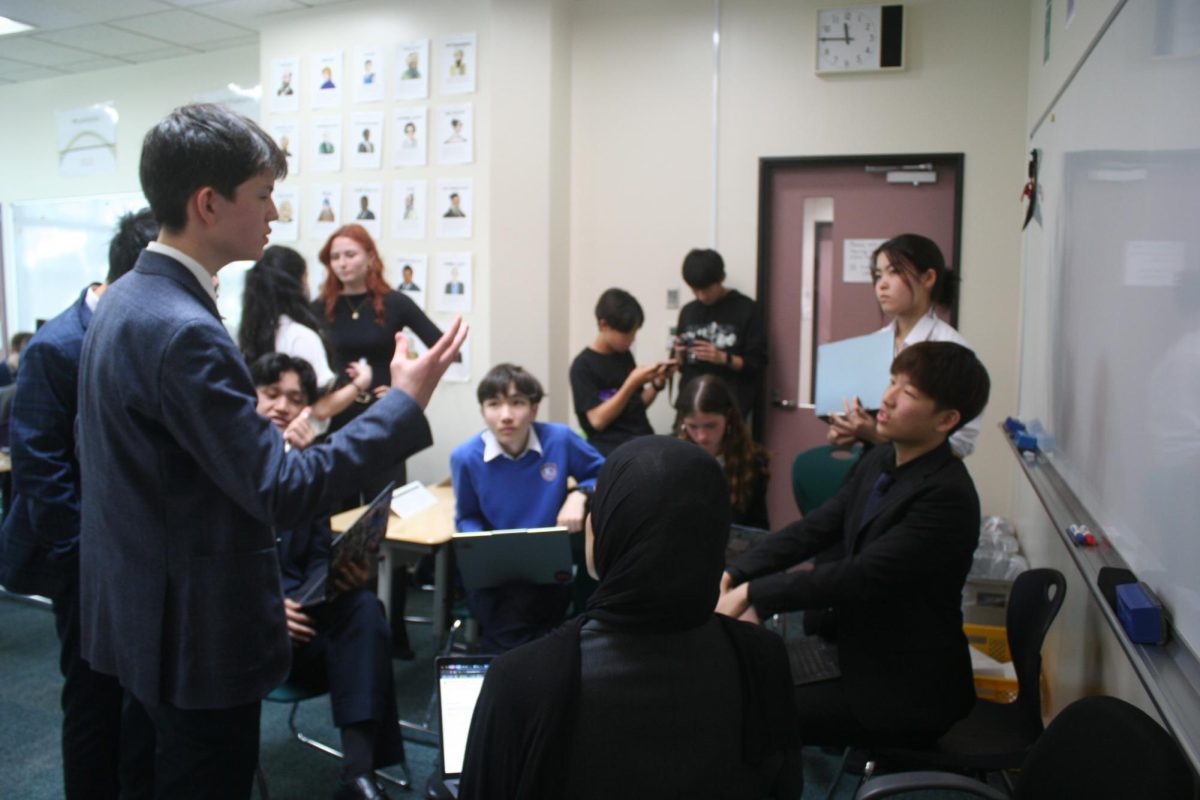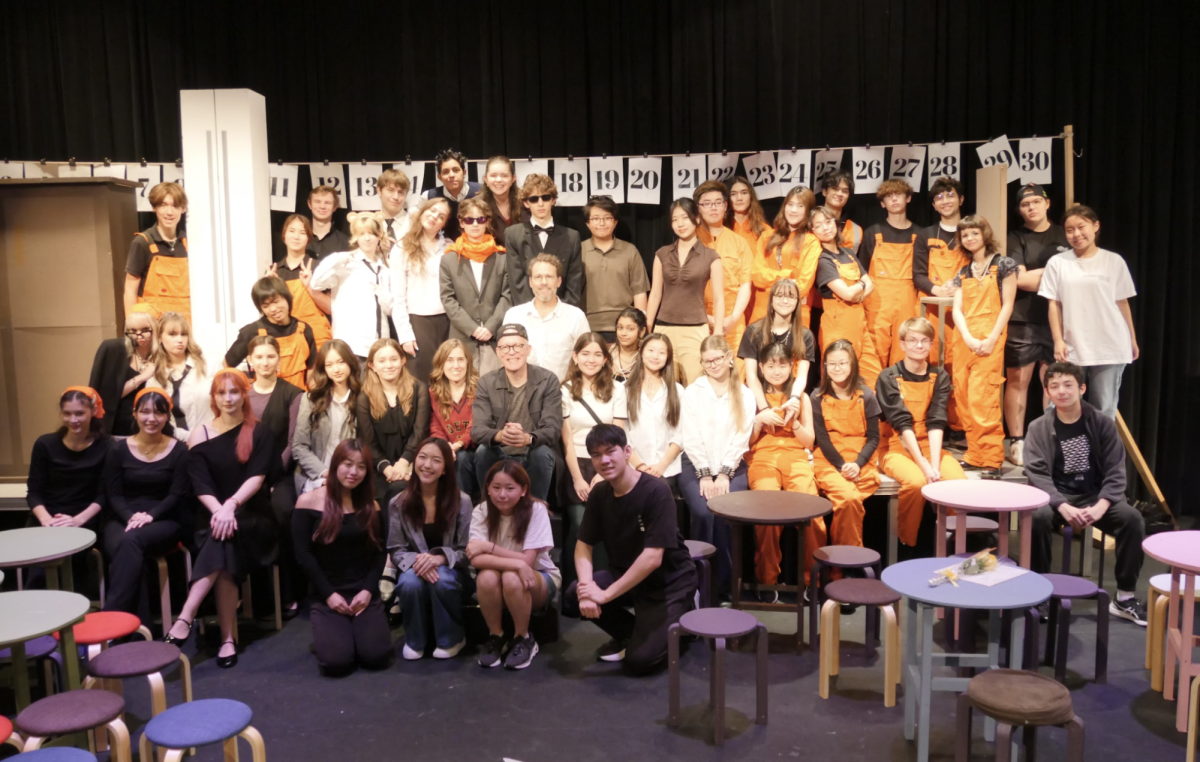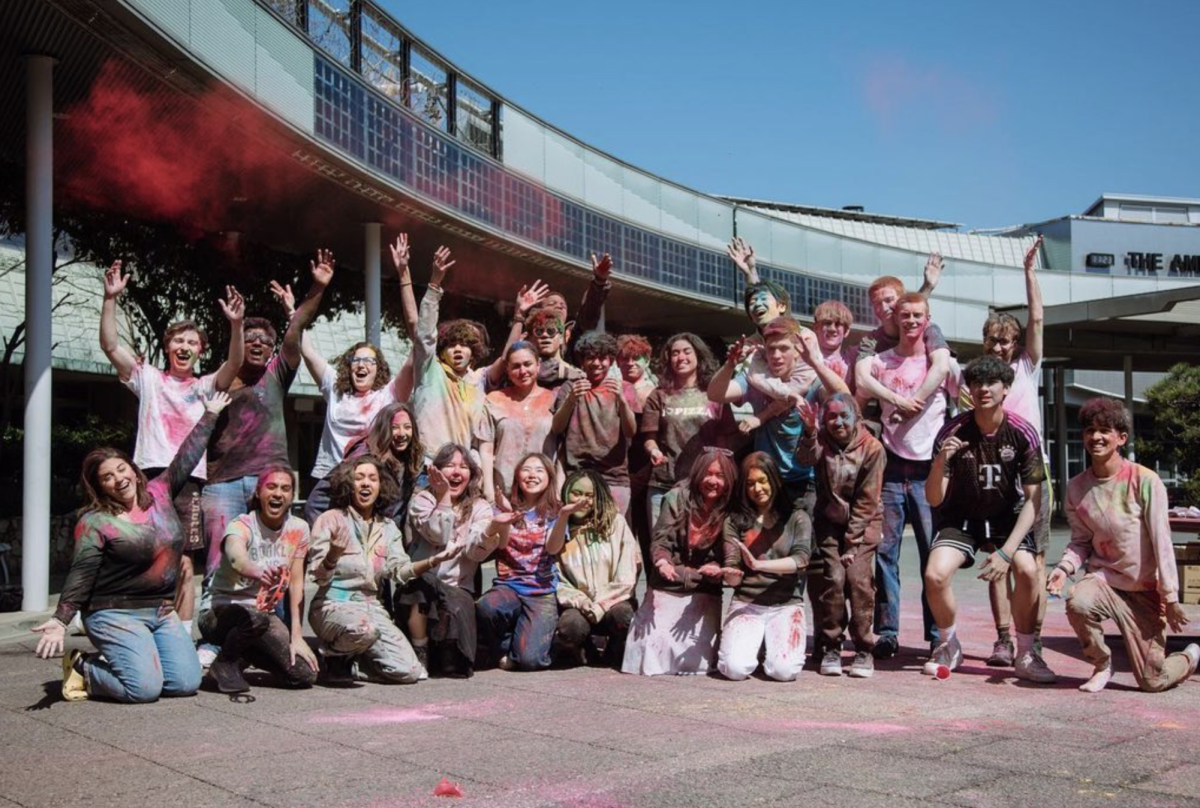The first day of debate in the SPECPOL committee ended with a resolution submitted by Brazil passing, and a resolution submitted by France waiting to be voted on tomorrow. A third resolution is expected to be discussed tomorrow as well.
The committee revolved around two main issues: addressing disinformation and nuclear energy production. In the opening speeches, the United States called for promoting free speech and only censoring “what can be proven as deliberately malicious,” and Russia insisted that nations be able to deal with disinformation “however they see fit,” while other nations such as Saudi Arabia and Canada focused more on media literacy and accountability. Regarding nuclear energy, most nations presented similar positions of promoting it responsibly and with strict safety measures in place.
After the opening speeches, the committee broke into three blocs during an unmoderated caucus. The first bloc, consisting of Brazil, Quasar, Ethiopia, Mexico, Belarus, Russia, Poland, and Albania, and the second bloc, consisting of France, United States, Vietnam, Sweden, Greece, and Saudi Arabia, each discussed resolutions mainly addressing the issue of disinformation. The third bloc, consisting of Canada, Japan, India, Australia, Germany, Italy, and the Democratic Republic of Congo discussed a resolution addressing nuclear energy.
The bloc of Brazil discussed giving smaller nations more power and acknowledged that simply educating citizens is insufficient. They also discussed their intent to remain impartial in the way the resolution was presented.
The bloc of France focused on two pillars of policy: education and fact-checking. The bloc focused on giving citizens of the nations the education and resources necessary to decide for themselves what is fact and what is not instead of imposing regulations on the nations. To achieve this, they discussed the possibility of having a faculty in the UN to check disinformation.
The bloc of Canada focused on the sustainable development of nuclear energy, while ensuring that strong safety measures are implemented, achieving transparency to avoid misuse of resources, and making sure that the LEDCs (Less Economically Developed Countries) are also capable of participating in nuclear energy programs.
The first bloc’s main submitter, Brazil, made a passionate speech outlining the main clauses of the bloc’s resolution, which included defining disinformation in the United Nations, urging member states to criminalize the “creation and dissemination of false information intended to incite violence and interfere in democratic processes or undermine public health or safety.” However, Brazil emphasized that such legislation should not “infringe upon freedom of expression,” recommending media literacy programs in schools.
While India proposed an amendment to the resolution consisting of deleting Clause 2—the clause calling for criminalization of the false information campaigns with malicious intent—the amendment did not pass, with 9 nations voting for and 10 voting against the amendment.
After the amendment was struck down, the resolution presented by Brazil passed with 11 nations voting for and 8 voting against the resolution.
Next, France, the second bloc’s main submitter, presented its own resolution, advocating for the creation of a UN agency, the United Nations Disinformation Agency, “to oversee all disinformation-related action.” France called upon member states to monitor disinformation campaigns within their nations with transparency and accountability, educate citizens through media literacy programs, and impose consequences against “perpetrators of disinformation campaigns.” France finalized with a requirement for “annual conferences to update member states on disinformation.”
After an addition proposed by Japan was narrowly passed, the committee proceeded to the For and Against speeches by Vietnam and Brazil, respectively. While the committee was quite close to voting on the resolution, at the end of the speeches, the committee voted to continue discussions on this resolution tomorrow, postponing the voting.
Both resolutions held similar ideas of international oversight, punishment for dissemination of disinformation, and promotion of media literacy programs. However, both have been criticized for having vague points, either in wording or in the implementation of policies. It appears that the committee agrees on some of the broad terms of the resolutions regarding disinformation, but struggles to define and agree upon the details in the resolutions.
While the committee has been rather successful on the first day, whether the second resolution will pass and what the third resolution will specifically entail remains to be seen on Saturday, April 5th.













